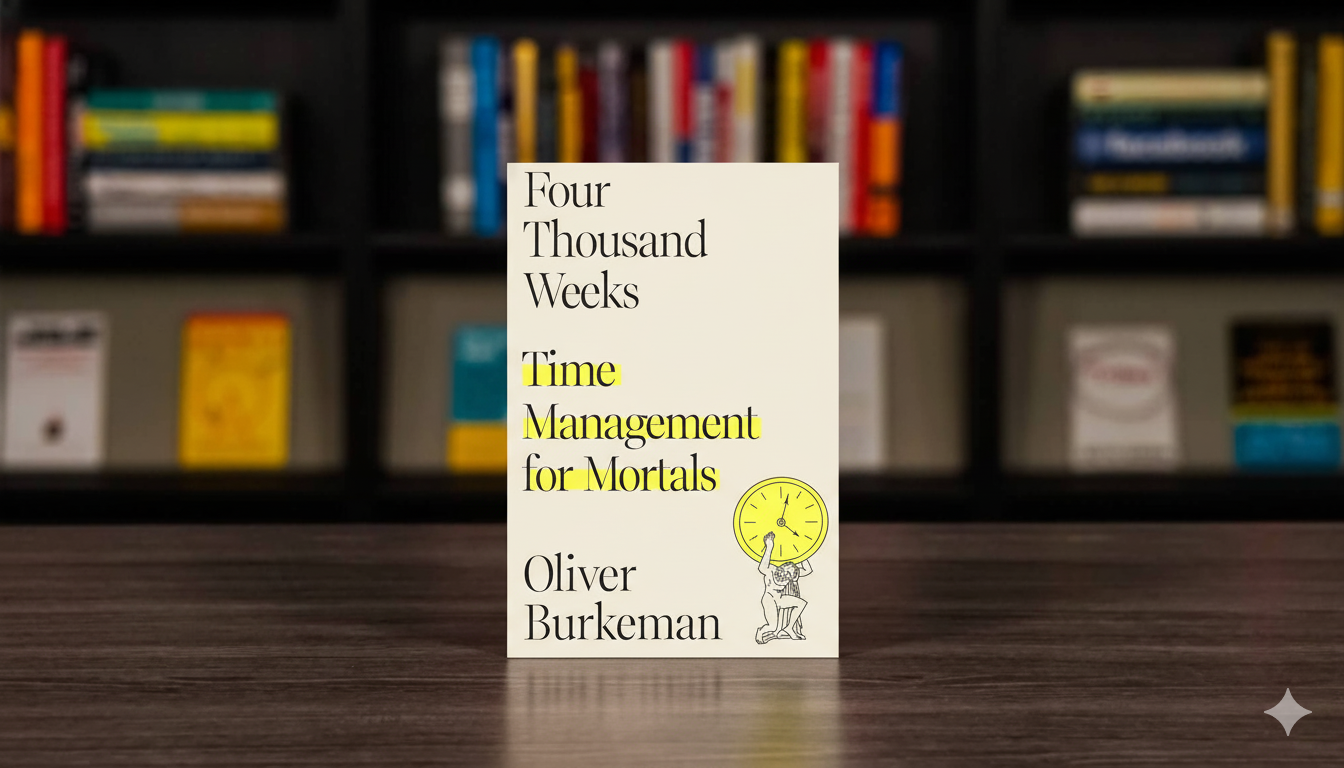Stop Trying to Do Everything.
If you live an average lifespan, you'll have about four thousand weeks on this planet. When you see it written down like that, it feels both incredibly long and shockingly short. This finite, precious number is the starting point for Oliver Burkeman's profound and refreshingly honest book, Four Thousand Weeks: Time Management for Mortals.
This isn't your typical productivity guide. It won't give you hacks to clear your inbox or optimize every second of your day. In fact, it argues that the relentless pursuit of "getting everything done" is a trap. The real secret to a meaningful life isn't about becoming a superhumanly efficient machine; it's about embracing the fact that your time is limited.
The Productivity Trap 🏃♂️💨
Modern productivity culture sells us a fantasy: if we just find the right system, the perfect app, or the ultimate life hack, we can finally get on top of everything. We can answer every email, pursue every ambition, and optimize our lives into a state of perfect control.
Burkeman calls this a trap. Why? Because the more efficient you become, the more tasks come your way. Clearing your inbox just means it fills up faster. This endless hamster wheel leads to anxiety, burnout, and a constant feeling of falling behind. The truth is, you will never, ever get everything done.
And according to Burkeman, accepting this fact is the key to freedom.
The Joy of Finitude: Embracing Your Limits
Instead of fighting against the reality of your limited time, Four Thousand Weeks encourages you to lean into it. When you truly accept that you can't do everything, you are forced to make hard choices about what actually matters.
This leads to some powerful realizations:
- The Paradox of Limitation: When you embrace your limits, your life expands. By accepting you can only focus on a few things, you give yourself permission to go deep on them, to do them well, and to actually enjoy them.
- Strategic Underachievement: You have to decide which balls you are going to drop. What are you willing to neglect in favor of what is truly important? True productivity isn't about doing more, but about consciously choosing what not to do.
- The Problem with "When-I-Finally" Thinking: We often live in the future, telling ourselves we'll be happy "when I finally clear my to-do list," or "when I finally get that promotion." Since you'll never be on top of everything, this "when" will never arrive. The goal is to find meaning and joy in the messy, imperfect present.
- Embrace "Good Enough": Stop waiting for the perfect moment or the perfect plan. Start now, with what you have. Done is better than perfect, especially when perfection is an illusion.
A New Relationship with Time
Four Thousand Weeks is a call to stop treating time as a resource to be ruthlessly exploited and to start treating it as the very fabric of your life. It's about presence over productivity, meaning over optimization.
The book won't help you clear your to-do list, but it might just help you come to peace with the fact that it will never be empty. And in doing so, it might just help you focus on the handful of things that give your four thousand weeks their deepest meaning. What will you do with yours?
